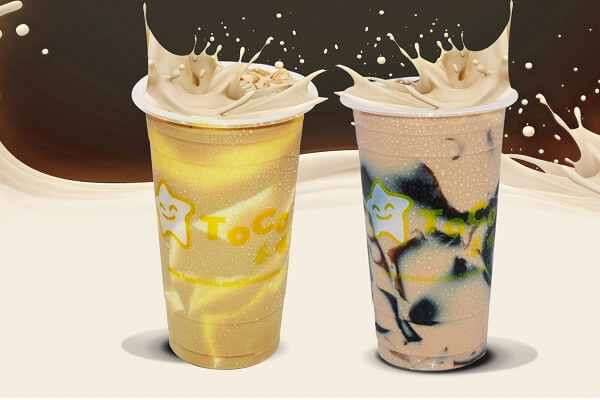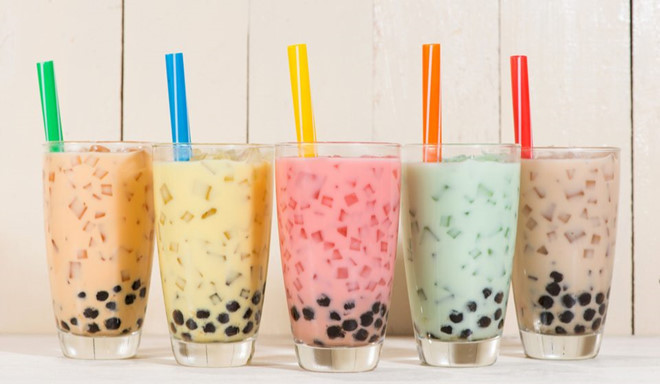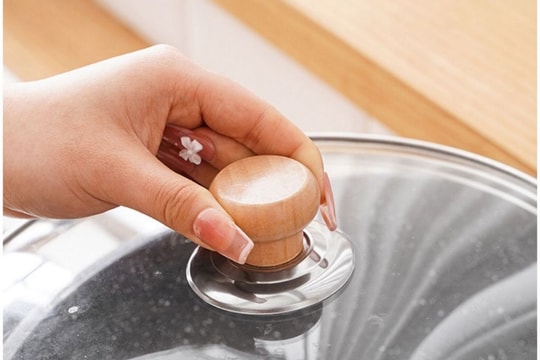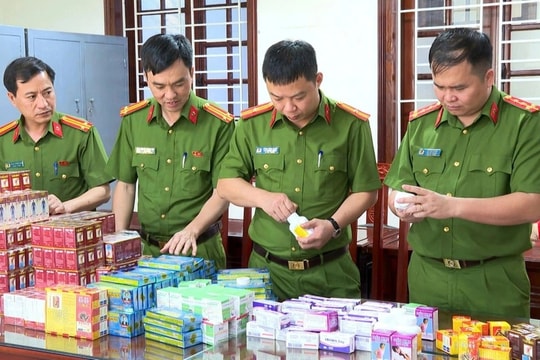How dangerous is bubble tea?
Many people admit to being "addicted" to milk tea. This drink contains many ingredients that have negative effects on health.
 |
Dr. Truong Hong Son - Director of Vietnam Institute of Applied Medicine, shares about the harmful effects of milk tea on health.
- Milk tea is a favorite drink of young people, even adults. Can you tell us what this drink actually is?
- The basic ingredients of milk tea usually include 3 main ingredients:
Tea:The basic teas commonly used in bubble tea include black tea, green tea, white tea, and oolong tea. If real tea is used, it contains a lot of antioxidants that have anti-inflammatory and anti-cancer effects. However, many shops often add flavorings (jasmine, lotus) to the tea to make it more attractive.
If you do not use the right type of tea or food flavorings with clear origins, it is very likely that these flavors will contain toxic chemicals (jasmine flavoring comes from penzylacetate, lotus flavoring comes from P - dimethoxy penzin, both are toxic organic substances).
Milk:Except for famous brands that use fresh milk and condensed milk, most small brands use heavy cream (not milk). This type of heavy cream is very low in calcium, vitamin A, D, and protein compared to milk. This heavy cream contains a lot of hydrogenated vegetable oil, which can have negative effects on health such as clogging blood vessels, increasing bad cholesterol, and reducing good cholesterol.
Pearl:The main ingredients of tapioca pearls are mainly tapioca starch or cassava starch (about 80%), concentrated sugar, food flavorings and only less than 1% of the pearls are fiber and protein.
Because the main ingredient is starch, although these pearls look very small, they contain a lot of energy. One pearl can contain up to 5-14 kcal each.
Typically, a cup of milk tea will often be added with 2 spoons of tapioca pearls, which can provide up to 100 kcal. However, tapioca pearls are basically lacking in many vitamins and minerals, and have almost no nutritional value.
Sugar: A cup of bubble tea can contain up to 50g of sugar (providing 200 kcal). That's not counting the calories from the milk and pearls.
However, nowadays, milk tea ingredients are not only tapioca pearls but also added with many other types of side dishes (often called toppings), such as egg pudding, cheese cream, jelly...
Depending on the type, the amount of calories in each type will increase or decrease. Compared to pearls, cream cheese may contain more energy, jelly may contain less energy.
In addition, if you drink fruit-flavored milk tea, the shops also add fruit syrup. This is also a source of calories for the body. In total, a cup of pearl milk tea can provide up to 335 kcal.
|
| Dr. Truong Hong Son - Director of Vietnam Institute of Applied Medicine. Photo:BSCC. |
- Is milk tea the culprit that makes drinkers gain weight?
- Because it contains a lot of sugar and calories, drinking too much milk tea can increase the risk of being overweight, obese, and malnourished. Especially for students, who are at an age where they need to accumulate nutrients, drinking too much milk tea can cause malnutrition and affect their development.
However, bubble tea is not the only cause nor the main cause of obesity. It is just one of the causes of obesity.
- Besides causing weight gain, what other harmful effects does milk tea have?
- Besides the risks of excess energy, milk tea also has health risks if the ingredients in this drink do not ensure food hygiene and safety.
For the sake of convenience, some bubble tea shops do not use natural tea powder but make it from color powder. The taste is no different from natural tea but it is made from chemical synthesis.
If the tea essence in milk tea does not exceed the standard and is used in moderation, it is not harmful to health. If used regularly for a long time, it will damage the function of the liver and kidneys.
The main ingredient of milk tea is hydrogenated vegetable oil, a type of trans fatty acid. This type of acid will reduce male hormones, controlling sperm vitality.
Many people love milk tea but are afraid of its uncertain origin, so they buy ingredients to make it themselves. If milk is not properly combined with tea, it will eliminate the benefits of tea. The casein protein in milk will reduce the compounds in tea that protect the body against cardiovascular diseases.
In addition, this drink also poses a risk of food poisoning if the ingredients and materials do not have a clear origin.
|
| Basically, tapioca pearls are deficient in many vitamins and minerals, and have almost no nutritional value. Photo:Shutterstock. |
- Recently, the news of a little girl vomiting, vomiting, and going into septic shock after drinking milk tea has made many people worried. Is milk tea really that dangerous?
- In addition to the risks of excess energy, causing liver and kidney damage and infertility, milk tea produced without ensuring food hygiene and safety can cause poisoning to users. This problem does not come from the milk tea itself but from the production as well as the origin of the ingredients that create this drink.
- What should we pay attention to when drinking milk tea?
- To drink milk tea that is still good for our health, we should choose milk tea that meets the criteria such as being processed at reputable stores, using ingredients with clear origin, using low sugar or sugar-free types, using fresh milk to make milk tea, not condensed milk or cream.
A cup of bubble tea may not have any health effects, but it is not a drink that can be consumed every day. Milk tea should not be given to children. Milk tea should not be consumed instead of main meals.






